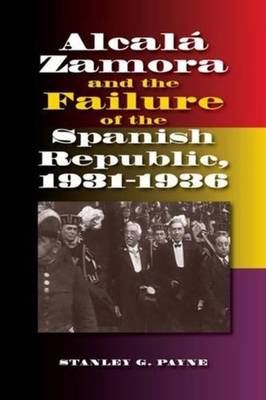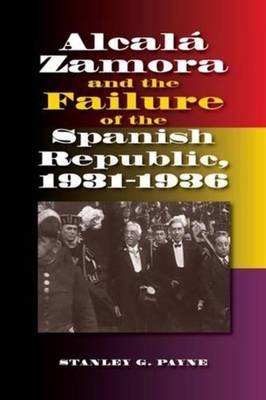
- Afhalen na 1 uur in een winkel met voorraad
- Gratis thuislevering in België vanaf € 30
- Ruim aanbod met 7 miljoen producten
- Afhalen na 1 uur in een winkel met voorraad
- Gratis thuislevering in België vanaf € 30
- Ruim aanbod met 7 miljoen producten
Zoeken
Alcala Zamora and the Failure of the Spanish Republic, 1931-1936
Stanley G Payne
€ 41,95
+ 83 punten
Omschrijving
The Second Spanish Republic (1931-36) was the only new liberal democratic regime to emerge in Europe during the 1930s. Historians, however, have focused primarily on the Civil War of 1936-39 that followed, devoting much less attention to the parliamentary regime that preceded it. This book deals with the history and failure of the democratic polity in Spain through a detailed examination of the initiatives of its president, Niceto Alcala Zamora. As civil servant, lawyer, politician and writer, by 1931 he had become one of the most successful men of Spain. He played the leading role in the downfall of the monarchy and the inauguration of the Republic, which he served for eight months as initial prime minister and then as the first president. Stanley Payne's study argues that the failure of the Republic was not inevitable but depended on the policy choices of its president and the key party leaders. Alcala Zamora's professed goal was to center the Republic, stabilizing the new regime while avoiding extremes, but he failed altogether in this project. The Constitution of 1931 stipulated the double responsibility of parliamentary government both to the president and to a voting majority. Though Alcala Zamora resisted strong efforts from the left to cancel the results of the first fully democratic elections in 1933, he subsequently used his powers recklessly, making and unmaking governments at will, refusing to permit normal functioning of parliament. This first critical scholarly account of the presidency of Alcala Zamora casts new light on the failure of democracy in interwar Europe and on the origins of the Spanish Civil War.
Specificaties
Betrokkenen
- Auteur(s):
- Uitgeverij:
Inhoud
- Aantal bladzijden:
- 200
- Taal:
- Engels
- Reeks:
Eigenschappen
- Productcode (EAN):
- 9781845198589
- Verschijningsdatum:
- 23/02/2017
- Uitvoering:
- Paperback
- Formaat:
- Trade paperback (VS)
- Afmetingen:
- 154 mm x 229 mm
- Gewicht:
- 340 g

Alleen bij Standaard Boekhandel
+ 83 punten op je klantenkaart van Standaard Boekhandel
Beoordelingen
We publiceren alleen reviews die voldoen aan de voorwaarden voor reviews. Bekijk onze voorwaarden voor reviews.











